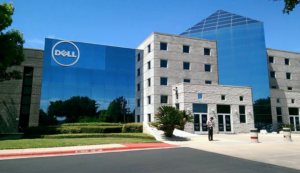 BOSTON — There’s a story missing from the Internet.
BOSTON — There’s a story missing from the Internet.
It’s not a big story, but it’s an important one. It’s just 250 words long and its content is the result of routine reporting; nothing especially remarkable.
It’s not a blockbuster. The article was written for the Austin Business Journal, a niche publication, about a relatively minor issue. Yet it’s notable because its removal from the Web represents a betrayal of public trust at time when trust is at a premium and journalism is already in a tenuous position.
The story’s disappearance should serve as a wake-up call to anyone who values the truth because its removal was done by a news company with a national reach. It also shows that some American companies won’t hesitate to put its self-interests ahead of the public’s right to know. Censorship remains an option.
The ABJ story was a follow up to a routine piece announcing that environmental group Keep America Beautiful would present CEO Michael Dell with an award in New York City. The follow-up piece highlighted the role that a $75,000 “sponsorship” by Dell may have played in the award. Was it a legitimate award, or did Dell effectively buy it? The online article was deleted more than a week after it ran when Dell Inc., the technology giant based in Round Rock, Texas, threatened the ABJ’s North Carolina-based parent company, American City Business Journals. (Here’s an early version of the deleted piece.)
In early 2016, Michael Dell revealed his opinion of the news business when urging workers to ignore reports that a proposed business deal had hit a snag: “The media business is under a lot of stress and their business model is sort of cratering,” he said. “And what they do to survive in those tough times is they create something called click bait. They create an inflammatory headline. So and so was impregnated by aliens, or whatever, click on here to read about this story, see some ads, try to get some money.”
 More than 700 stories about Dell, or referring to the company, appear under this reporter’s byline. Many of them were skeptical of information released by the company and revealed issues such as employee lawsuits Dell officials probably preferred were not reported. They commented for the (deleted) award story and never disputed its accuracy or fairness after it was posted. As such, Dell’s threat more than a week after the story ran raises questions about the company’s motivations.
More than 700 stories about Dell, or referring to the company, appear under this reporter’s byline. Many of them were skeptical of information released by the company and revealed issues such as employee lawsuits Dell officials probably preferred were not reported. They commented for the (deleted) award story and never disputed its accuracy or fairness after it was posted. As such, Dell’s threat more than a week after the story ran raises questions about the company’s motivations.
In April, I recounted in another blog post the details of Dell’s censorship and the series of retaliatory actions it took with the ACBJ as an apparent accomplice. To recap, an ABJ manager said that while I was on vacation in mid-2015 a Dell official threatened our parent company over our coverage. Two weeks later, I was suddenly given an unscheduled performance review that stated my job was in jeopardy despite the lack of a single human resources issue during 10 years with the company. I was then dismissed after breaking another enterprise story about Dell planning to relocate its annual users conference from Austin to Las Vegas.
In April, the ACBJ’s CEO declined to comment on the matter to Talking Biz News, unimaginatively referring to it as a “personnel issue.” He was right. But the problem doesn’t concern the ‘personnel’ a reader would be led to believe; it’s the managers not standing up to corporate bullies.
It’s important to note that the Dell debacle has national implications because the ACBJ operates news outlets in 43 metropolitan areas. Many of the outlets provide content to NPR stations assuming the reporting is unbiased. However, it’s unlikely that this was an isolated incident. How many other companies dictate news coverage in ACBJ newsrooms?
ACBJ is owned by Advance Publications Inc., a New York-based company controlled by the Newhouse family, major donors to Syracuse University’s journalism program. That ownership structure insulates the parent company from accountability, enabling it to promote its support of quality reporting while its own lower-level execs undermine reporting.
Advertisers and the politically connected have influenced news coverage since time immemorial. But such pressures are arguably at their greatest level now as news business profits shrink. As a result, it’s never been more important to guard against anything that can result in biased coverage and violate time-tested principles.
Reporters are like the truth; you have to face them sometime, no matter how much power you have.
 BOSTON — Imagine a poorly reviewed restaurant that’s infamous for crappy food and service yet enjoys long lines of eager customers. That’s the situation in which the technology industry finds itself today.
BOSTON — Imagine a poorly reviewed restaurant that’s infamous for crappy food and service yet enjoys long lines of eager customers. That’s the situation in which the technology industry finds itself today.


